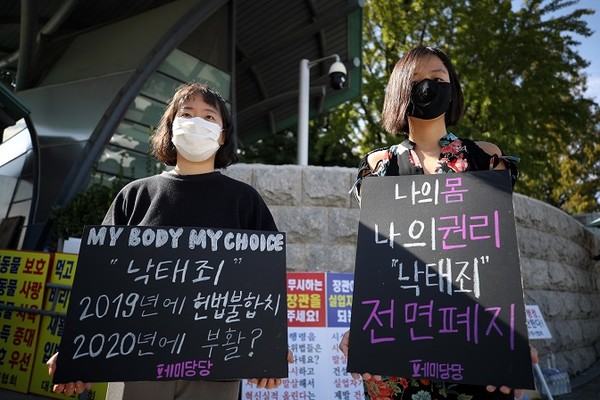The ability to bring new life into the world will forever be one of the most mundane miracles of humanity — challenging but commonplace, both simple and incredibly complex. Most people, even from childhood, have considered becoming a parent at some point; some might even make life plans years in advance for their desired family. But its ubiquity is accompanied by controversy; everyone has an opinion. Some view contraception as an insult to nature; others hold that personhood begins at birth. Laws protecting women are subject to intense argument, scrutiny, and even blatant opposition. As a result, a woman’s right to receive an abortion — to terminate an unwanted or unviable pregnancy — is a not a universal right, not yet. That some laws are even regressing terrifies me.
On September 1, Texas enacted state legislation that effectively bans most abortions. Without any exceptions, even in cases of rape, sexual abuse, or incest, the law now says that any pregnancy in which a heartbeat can be detected cannot be aborted. This is normally around the six-week mark, which is often before women even discover they are pregnant. This isn’t even the most shocking part: the new bill also incentivizes public policing of abortions in Texas. Anyone is allowed to sue any abortion provider or other person believed to be involved in “aiding and abetting” abortions after six weeks, for an award of 10,000 USD in a successful lawsuit. In other words, the state is encouraging abortion bounty hunters to profit from the law, and enabling the punishment of even a taxi driver who took a woman to an abortion clinic. This has nearly entirely halted abortion services throughout the state.
The person who signed this law into existence? A man. To be specific, Republican Texan Governor Greg Abbott, who professed to be “saving lives from the ravages of abortion”. In our majority-conservative, rigid societies still beholden to the patriarchy, most lawmakers are men. Carrying a pregnancy to term and then having a child profoundly impacts a woman’s life in ways it simply does not affect men, changing her body, determining her career opportunities, even endangering her life. When men are stopping women from aborting unplanned and unwanted pregnancies, even those resulting from rape, is it really pro-life or just pro-control? One sex making rules that is only applicable to the other seems ludicrous. Unexpected children are also more likely to be born into broken homes; a common reason for abortion is lack of finances. Saving fetus’ lives just to abandon children into potential neglect, abuse, or simple deprivation contradicts a pro-life philosophy. Forcing women into motherhood is a particularly potent method of maintaining the patriarchy.
When I first came to KAIST, something my new roommate said to me was particularly memorable. “Whatever you do, don’t get pregnant,” she casually advised, “because abortion is illegal here.” In Korea, abortion was only decriminalized this year in January, when the anti-abortion laws that were in place since 1953 were officially repealed. This was achieved after a court ruling in 2019 that the ongoing criminalization of abortion, which punished women with a year in prison or a fine up to 2 million KRW, was unconstitutional.

Although now not illegal, much remains to be done before safe abortion, easily accessible in hospitals or clinics, is available nationwide — the repealed laws were not replaced with any legislation guaranteeing access to abortion. Speaking to Deutsche Welle, Kyung-jin Oh, a member of Korean Women's Associations United, said that Korea’s approach to abortion has traditionally been about controlling the population “based on very conservative elements rather than to guarantee women’s sexual and reproductive health and rights.” One proposed bill suggested unrestricted abortion up to 14 weeks, and in exceptional cases up to 24, but this has not been passed into law, and faced opposition from both sides of the argument: too lax for conservatives and too restrictive for campaigners.
A lack of information and legal protection means the stigmatization of abortion here remains significant, and women often face pressure not to abort a pregnancy despite even greater ostracization against unmarried mothers. In a nation troubled by an aging population and low birth rate, the enactment of pro-choice legislation is a difficult step, especially in the face of conservative politicians. But it is a necessary one.
When the right to safe abortion is endangered, women’s equality is jeopardized. I want to live in a world where I can make basic decisions about myself and my future family without fear, and without interference from men who have too much power and too little compassion.

